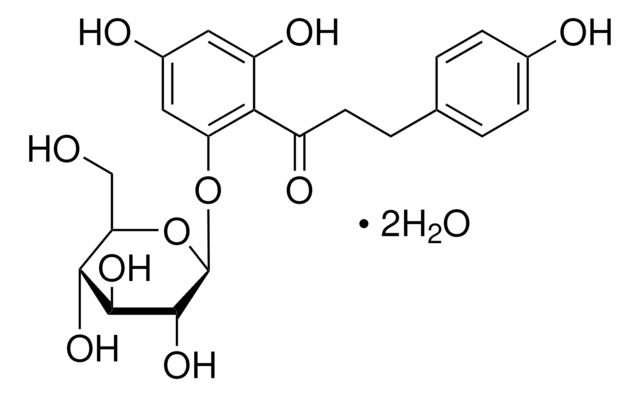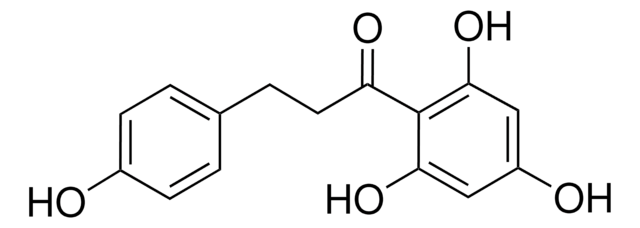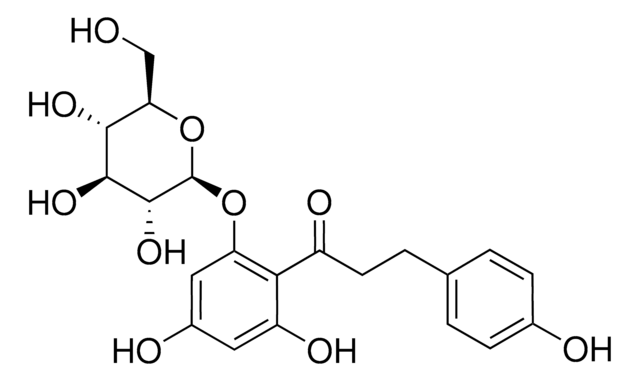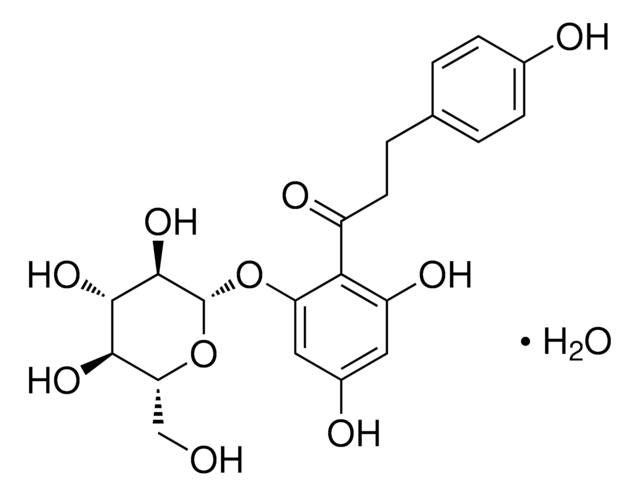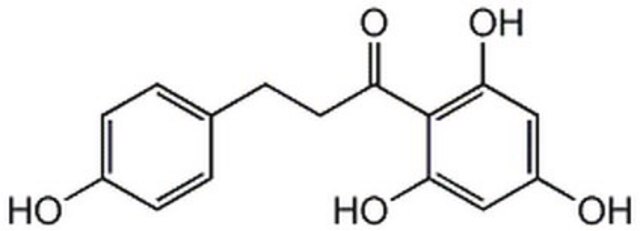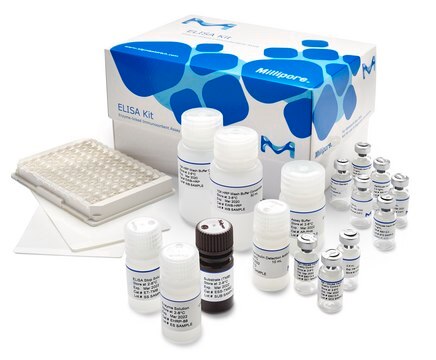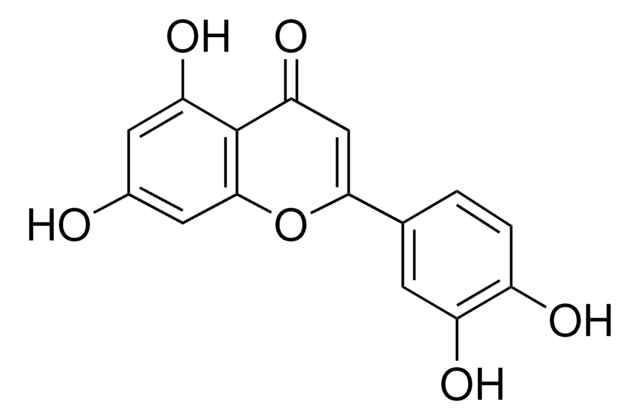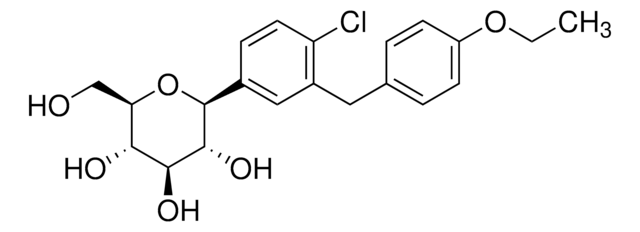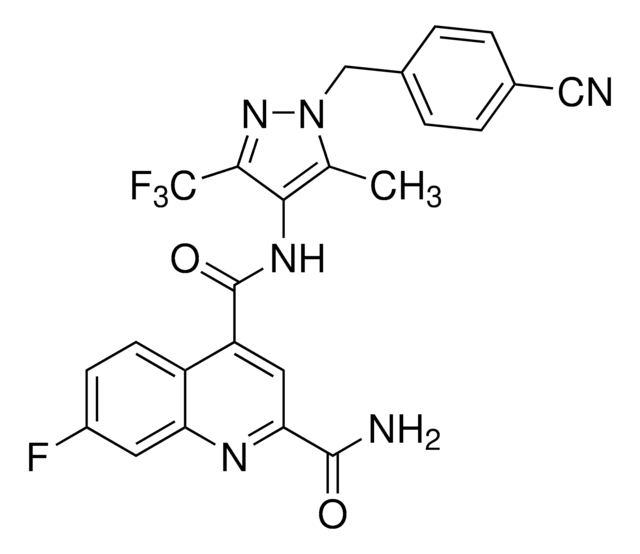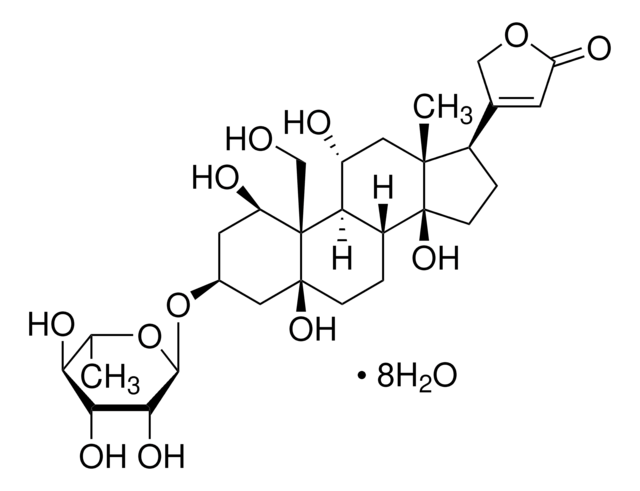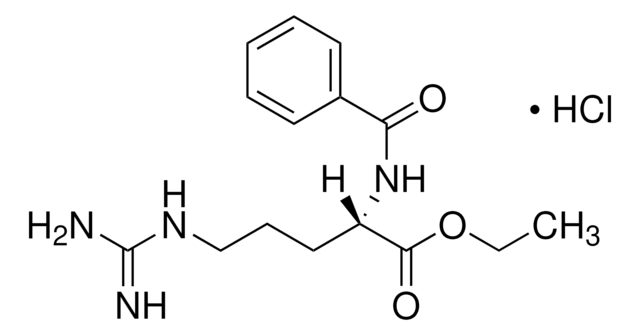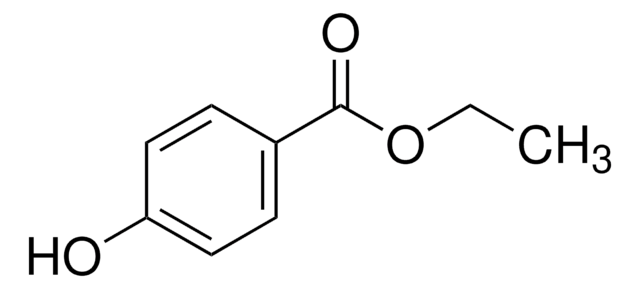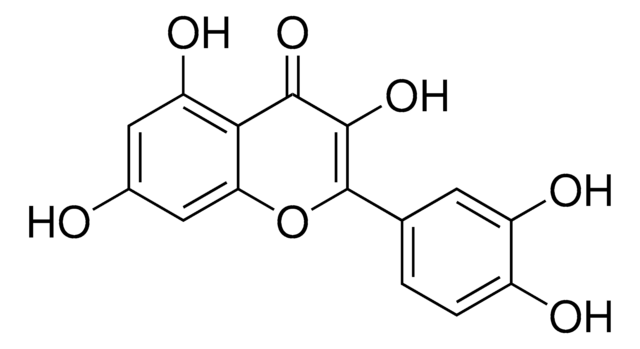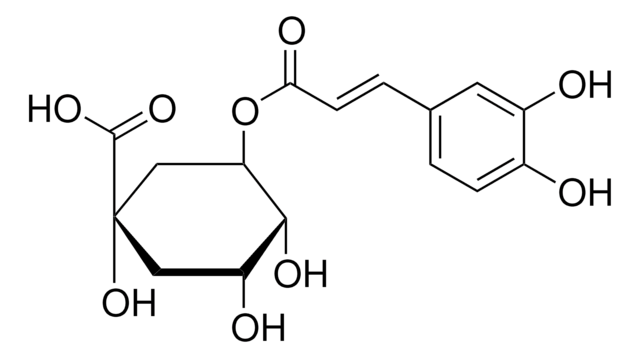P3449
Phloridzin dihydrate
from apple wood, ≥99% (HPLC)
Synonym(s):
1-[2-(β-D-Glucopyranosyloxy)-4,6-dihydroxyphenyl]-3-(4-hydroxyphenyl)-1-propanone, Phloretin 2′-β-D-glucopyranoside, Phloretin 2′-β-D-glucoside, Phlorizin dihydrate
About This Item
Recommended Products
biological source
apple wood
Quality Level
assay
≥99% (HPLC)
form
powder
mp
113-114 °C (lit.)
SMILES string
O.O.OC[C@H]1O[C@@H](Oc2cc(O)cc(O)c2C(=O)CCc3ccc(O)cc3)[C@H](O)[C@@H](O)[C@@H]1O
InChI
1S/C21H24O10.2H2O/c22-9-16-18(27)19(28)20(29)21(31-16)30-15-8-12(24)7-14(26)17(15)13(25)6-3-10-1-4-11(23)5-2-10;;/h1-2,4-5,7-8,16,18-24,26-29H,3,6,9H2;2*1H2/t16-,18-,19+,20-,21-;;/m1../s1
InChI key
XQWBNXSENPTIDY-YXMARJSJSA-N
Looking for similar products? Visit Product Comparison Guide
Application
- a Na+-glucose cotransport inhibitor to test its effect in lowering blood glucose
- a hexose carrier inhibitor to prevent glucose derivative 2-(N-(7-nitrobenz-2-oxa-1,3-diazol-4-yl)amino)-2-deoxyglucose (2-NBDG) uptake in sycamore cells
- a non-specific sodium-glucose co-transporter 2 (SGLT2) inhibitor in embryonic cardiomyocyte cell line H9C2 to investigate its protective effect on Dox-induced cytotoxicity
Biochem/physiol Actions
Features and Benefits
Other Notes
signalword
Warning
hcodes
Hazard Classifications
Eye Irrit. 2 - Skin Irrit. 2 - STOT SE 3
target_organs
Respiratory system
wgk_germany
WGK 3
flash_point_f
Not applicable
flash_point_c
Not applicable
ppe
dust mask type N95 (US), Eyeshields, Gloves
Certificates of Analysis (COA)
Search for Certificates of Analysis (COA) by entering the products Lot/Batch Number. Lot and Batch Numbers can be found on a product’s label following the words ‘Lot’ or ‘Batch’.
Already Own This Product?
Find documentation for the products that you have recently purchased in the Document Library.
Customers Also Viewed
Articles
We presents an article about the Warburg effect, and how it is the enhanced conversion of glucose to lactate observed in tumor cells, even in the presence of normal levels of oxygen. Otto Heinrich Warburg demonstrated in 1924 that cancer cells show an increased dependence on glycolysis to meet their energy needs, regardless of whether they were well-oxygenated or not.
Our team of scientists has experience in all areas of research including Life Science, Material Science, Chemical Synthesis, Chromatography, Analytical and many others.
Contact Technical Service